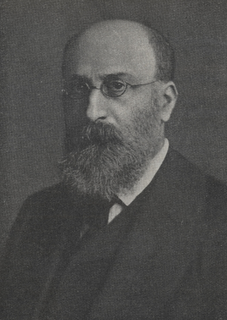 W
WGuido Adler was a Bohemian-Austrian musicologist and writer.
 W
WLouis Applebaum, was a Canadian film score composer, administrator, and conductor.
 W
WLionel Bart was a British writer and composer of pop music and musicals. He wrote Tommy Steele's "Rock with the Caveman" and was the sole creator of the musical Oliver! (1960). With Oliver! and his work alongside theatre director Joan Littlewood at Theatre Royal, Stratford East, he played an instrumental role in the 1960s birth of the British musical theatre scene after an era when American musicals had dominated the West End.
David Beigelman (1887–1945), also known as Dawid Bajgelman and Dawid Beigelman, was a Polish violinist, orchestra leader, and composer of Yiddish theatre music and songs.
 W
WLeon Golzmann or as he was more commonly known, Dajos Béla, was Russian jazz violinist and band-leader.
 W
WGary Bertini was one of the most important Israeli musicians and conductors.
 W
WZygmunt Białostocki was a Polish Jewish musician. He composed many popular Polish pre-war songs, and worked as conductor and a première pianist in Warsaw between the World Wars.
 W
WAuguste van Biene was a Dutch composer, cellist and actor. He became best known for his composition The Broken Melody, performed by the composer as part of a musical play of the same name.
 W
WBruno Bjelinski was one of a most influential Croatian composers in the 20th century. He was extremely prolific as a composer. His unique musical style was built upon the music of Poulenc, Hindemith, Ravel and Milhaud. He developed his own and recognizable musical language with the elements of neoclassicism. Bjelinski composed six operas, three ballets, 15 symphonies, 2 cello concertos, a cantata, piano music, songs, chamber music, and concertos for piano, violin, viola, bassoon, flute, and piano duo. He also composed music for the Croatian football movie Plavi 9.
 W
WDavid D'Or is an Israeli singer, composer, and songwriter. A countertenor with a vocal range of more than four octaves, he is a three-time winner of the Israeli "Singer of the Year" and "Best Vocal Performer" awards. He was also chosen to represent Israel in the 2004 Eurovision Song Contest, at which he placed 11th in the semi-final. By February 2008, nine of his albums had gone platinum.
 W
WJoel Derfner is an American writer and composer. He is the author of three gay-themed books: Gay Haiku (2005), Swish: My Quest to Become the Gayest Person Ever and What Ended Up Happening Instead (2008), and Lawfully Wedded Husband: How My Gay Marriage Will Save the American Family (2013). His articles have appeared in publications including the Huffington Post, The Advocate, Time Out New York, and Between the Lines. Derfner and his works have been cited as references on gay culture, and he has been noted as one of "today's best-known gay writers".
 W
WVyacheslav Grigoryevich Dobrynin is a popular Russian composer and singer also known as Doctor Shlyager. He was awarded the People's Artist of Russia in 1996.'
 W
WIsaak Osipovich Dunayevsky was a Soviet film composer and conductor of the 1930s and 1940s, who achieved huge success in music for operetta and film comedies, frequently working with the film director Grigori Aleksandrov. He is considered one of the greatest Soviet composers of all time. Many of his songs are very well known and held in high regard in Russia and the former Soviet Union.
 W
WMaksim Isaakovich Dunayevsky is a popular Soviet/Russian film composer. He is the son of Isaak Dunayevsky.
 W
WPercy Faith was a Canadian bandleader, orchestrator, composer and conductor, known for his lush arrangements of pop and Christmas standards. He is often credited with popularizing the "easy listening" or "mood music" format. Faith became a staple of American popular music in the 1950s and continued well into the 1960s. Though his professional orchestra-leading career began at the height of the swing era, Faith refined and rethought orchestration techniques, including use of large string sections, to soften and fill out the brass-dominated popular music of the 1940s.
 W
WJoseph Fischhof was a Czech-Austrian pianist, composer and professor at the Vienna Conservatory of Music, belonging to the Romantic school.
 W
WMark Grigoryevich Fradkin was a Soviet composer, author of numerous popular songs and musical scores for forty films. In 1979, Mark Fradkin received the USSR State Prize and, in 1985, he was granted the status of the People’s Artist of the USSR.
 W
WNorbert Glanzberg was a Galician-born French composer. Mostly a composer of film music and songs, he was also notable for some famous songs of Édith Piaf.
 W
WSimon (Sim) Gokkes was a Dutch-Jewish composer.
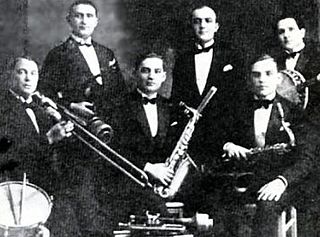 W
WArtur (Arthur) Gold was a Polish Jewish violinist and dance-music composer during the Interbellum. He closely collaborated with his brother Henryk Gold and with Jerzy Petersburski with whom he arranged music for his famous ensembles; they were among the most popular composers in interwar Poland and many of their hits were sung throughout the whole country. Gold ran an orchestra in the "Qui Pro Quo" theater (1922) and in the Warsaw "Adria" night club (1931–1939).
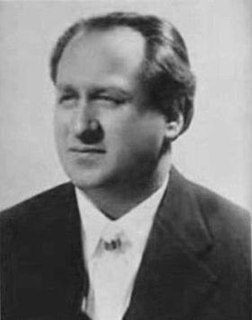 W
WBernard Grüner was Croatian Jewish composer, hazzan of the Dohány Street Synagogue and chief hazzan of the Jewish Community in Zagreb.
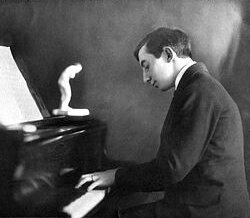 W
WWerner Richard Heymann, also known as Werner R. Heymann was a German-Jewish composer active in Germany and in Hollywood.
 W
WFriedrich Hollaender was a German film composer and author.
 W
WAlen Ilijic, , is a new media avant-garde composer and polymedia artist. He studied film music with Professor Amit Sen at City of Westminster College in London, and composition, orchestration, electronic music and sound engineering at the Faculty of Music in Belgrade, with one of the most well-known composers, music theorists and modern music scholars in Eastern Europe, Dr. Srđan Hofman.
 W
WHanoch (Heinrich) Jacoby was an Israeli composer and viola player.
 W
WJakub Kagan was a popular Polish-Jewish composer, pianist, jazz musician and arranger. In the early 1920s, he formed the Kagan's Jazz Band in Warsaw, performing in operettas, cabarets, and hotels. Since 1922 Kagan was a feature artist at the Kabaret Mirage and at the Teatr Nowości. In 1926 he signed a contract with the luxury Hotel Bristol in Warsaw. His band performed world-renowned standards as well as his own compositions widely popular across the country. He died in Warsaw during the Holocaust in occupied Poland.
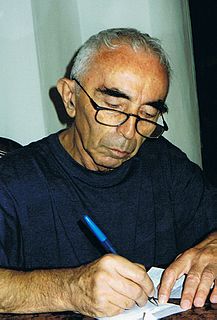 W
WShlomo Kalo was a writer and microbiologist. He published approximately 80 fiction and nonfiction books in Hebrew, some of which are published in translation internationally.
 W
WSzymon Kataszek (1898–1943), was a Polish-Jewish composer, bandleader, pianist, a pioneer of Polish jazz. Born in Warsaw 1898; studied piano at the Warsaw Music Institute and Rome's St. Cecilia Academy. He returned to Poland and first worked as an organist in St. Trinity Church, while also playing piano in nightclubs.
 W
WGeorg Kreisler was an Austrian–American Viennese-language cabarettist, satirist, composer, and author. He was particularly popular in the 1950s and 1960s. From 2007 he lived in Salzburg, Austria, with his fourth wife, Barbara Peters. He died there on 22 November 2011 "after a severe infection," according to his wife Barbara.
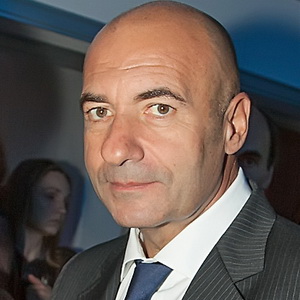 W
WIgor Yakovlevich Krutoy or Ihor Yakovych Krutyi, is a Ukrainian and Russian music composer, performer, producer and musical promoter. Krutoy was awarded the Lenin Komsomol Prize in 1989. He is also "Honoured Artist of the Russian Federation", People's Artist of Russia and People's Artist of Ukraine.
 W
WMax Avelyevich Kyuss was a Russian and Soviet musician, conductor and composer, primarily in the Russian and Soviet military. He is most famous for composing the waltz Amur Waves.
 W
WHermann Leopoldi was an Austrian composer and cabaret star who survived Buchenwald. Einzi Stolz, wife of composer Robert Stolz, remembered him thus:"Leopoldi was for us all some sort of creature from a different planet. Through a salvation bordering on a wonder he had survived the horrors of concentration camps Buchenwald and Dachau. He maintained his belief in the good in humanity and remained an optimist, who gave courage and confidence to many in times of difficulty."
 W
WErez Lev Ari is an Israeli singer-songwriter. His music often incorporates Jewish teachings and themes.
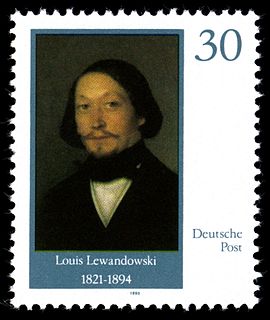 W
WLouis Lewandowski was a Polish-Jewish and German-Jewish composer of synagogal music.
 W
WIsrael Lovy, also known as Israel Glogauer and Israel Fürth, was a ḥazzan and composer.
 W
WLeo Low was Jewish choral conductor, composer, arranger, teacher and lecturer. He was one of the first to collect, arrange, and popularize Yiddish and Hebrew folk and art songs, popularizing songs such as A Dudele by Levi Yitzchok of Berditchev.
 W
WDon Tourliev "Danny" Maseng is an Israeli-born performer. An actor, singer and writer, Maseng is known as a composer of contemporary Jewish Liturgical music. He currently leads MAKOM LA, a spiritual community in Los Angeles, California.
 W
WDavid Arugete, commonly known under his stage name Darío Moreno, was a Turkish-Jewish polyglot singer, an accomplished composer, lyricist, and guitarist. He attained fame and made a remarkable career centred in France which also included films, during the 1950s and the 1960s. He became famous with his 1961 song Brigitte Bardot.
 W
WArno Nadel was a Jewish musicologist, composer, playwright, poet, and painter.
 W
WSamuel Naumbourg, French composer.
 W
WVelvel Pasternak was a musicologist, conductor, arranger, producer, and publisher specializing in Jewish music. In 1981, the New York Times described him as "an expert on the music of the Hasidic sect and probably the largest publisher of Jewish music anywhere, although he was quick to note that publishing Jewish music is a business that attracts few rivals."
 W
WRavid Plotnik, also known by his stage name Nechi Nech (Hebrew: נֶצ'י נֶצ' is an Israeli singer and rapper.
 W
WDmitry Yakovlevich Pokrass was a Soviet composer of Jewish origin. He composed popular music and scores for the theatre and films. Dmitry Pokrass was recognized in 1975 as a People's Artist of the USSR.
 W
WMendy Portnoy is an English-born Israeli singer, pianist, and composer. He is best known as half of the folk rock duo the Portnoy Brothers with his older sibling Sruli. He has also released two albums as a solo artist.
 W
WZlata Razdolina is a Russian Jewish composer, singer-songwriter and music performer. She is best known as being the author of the music for Requiem by Anna Akhmatova, The Song of the Murdered Jewish People by Itzhak Katzenelson, and hundreds of romances and songs based on poems by Russian classical poets, including Anna Akhmatova, Nikolay Gumilyov, Marina Tsvetayeva and Igor Severyanin.
 W
WDavid Daniel Rose was an American songwriter, composer, arranger, pianist, and orchestra leader. His best known compositions were "The Stripper", "Holiday for Strings", and "Calypso Melody". He also wrote music for many television series, including It's a Great Life, The Tony Martin Show, Little House on the Prairie, Highway to Heaven, Bonanza, and Highway Patrol, some under the pseudonym Ray Llewellyn. Rose's work as a composer for television programs earned him four Emmys. In addition, he was musical director for The Red Skelton Show during its 21-year run on the CBS and NBC networks. He was a member of Phi Mu Alpha Sinfonia, the national fraternity for men in music.
 W
WMárk Rózsavölgyi was a Hungarian composer and violinist. He has been called "the father of csárdás".
 W
WJoseph Rumshinsky (1881–1956) was a Jewish composer born near Vilna, Lithuania. Along with Sholom Secunda, Alexander Olshanetsky and Abraham Ellstein, he is considered one of the "big four" composers and conductors of American Yiddish theater.
 W
WCharles Kensington Salaman was a British Jewish composer, pianist, and writer. He was the composer of over a hundred settings of Hebrew texts for the West London Synagogue, as well as numerous songs in English, French, German, Italian, Spanish, Latin, and Greek.
 W
WRafael Schächter, was a Czechoslovak composer, pianist and conductor of Jewish origin, organizer of cultural life in Terezín concentration camp.
 W
WEmanuel Schlechter was born and died in Lwów. He was a Polish-Jewish artist, lyricist, screenwriter, librettist, writer, satirist, translator, composer and director.
 W
WDaniel Shalit is an Israeli conductor, composer, and doctor of musicology and philosophy.
 W
WVerdina Shlonsky was an Israeli composer, pianist, publicist and painter.
 W
WOscar Nathan Straus was a Viennese composer of operettas and film scores and songs. He also wrote about 500 cabaret songs, chamber music, and orchestral and choral works. His original name was actually Strauss, but for professional purposes he deliberately omitted the final 's', since he wished not to be associated with the musical Strauss family of Vienna. However, he did follow the advice of Johann Strauss II in 1898 about abandoning the prospective lure of writing waltzes for the more lucrative business of writing for the theatre.
 W
WCarlo Sigmund Taube was a pianist, composer, conductor, and victim of the Holocaust.
 W
WSalo Siegfried Translateur, or Siegfried "Salo" Translateur, Hebrew: זיגפריד "סאלו" טרנסלטור was a German conductor and composer of waltzes, marches, and other light dance music. Today he is most famous for his Wiener Praterleben waltz, which became popular as Sportpalastwalzer in 1920s Berlin.
 W
WTristan Tzara was a Romanian and French avant-garde poet, essayist and performance artist. Also active as a journalist, playwright, literary and art critic, composer and film director, he was known best for being one of the founders and central figures of the anti-establishment Dada movement. Under the influence of Adrian Maniu, the adolescent Tzara became interested in Symbolism and co-founded the magazine Simbolul with Ion Vinea and painter Marcel Janco. During World War I, after briefly collaborating on Vinea's Chemarea, he joined Janco in Switzerland. There, Tzara's shows at the Cabaret Voltaire and Zunfthaus zur Waag, as well as his poetry and art manifestos, became a main feature of early Dadaism. His work represented Dada's nihilistic side, in contrast with the more moderate approach favored by Hugo Ball.
 W
WWilliam Weiner is an Armenian–Israeli composer, violinist and vocalist; Meritorious Worker of Art of Armenia (2008); a member of the Israel Composers League (2013); president of the Jewish cultural center "Menorah" in Armenia (1994), and director of the Yerevan State Chamber Choir (2018).
 W
WMoshe Wilensky was a Polish-Israeli composer, lyricist, and pianist. He is considered a "pioneer of Israeli song" and one of Israel's leading composers, and was a winner of the Israel Prize, the state's highest honor.
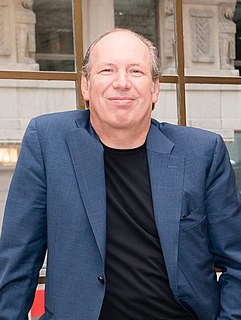 W
WHans Florian Zimmer is a German film score composer and record producer. Zimmer's works are notable for integrating electronic music sounds with traditional orchestral arrangements. Since the 1980s, he has composed music for over 150 films. His works include The Lion King, for which he won the Academy Award for Best Original Score in 1995, the Pirates of the Caribbean series, Interstellar, Gladiator, Crimson Tide, Inception, Dunkirk, and The Dark Knight Trilogy. He has received four Grammy Awards, three Classical BRIT Awards, two Golden Globes, and an Academy Award. He was also named on the list of Top 100 Living Geniuses, published by The Daily Telegraph.